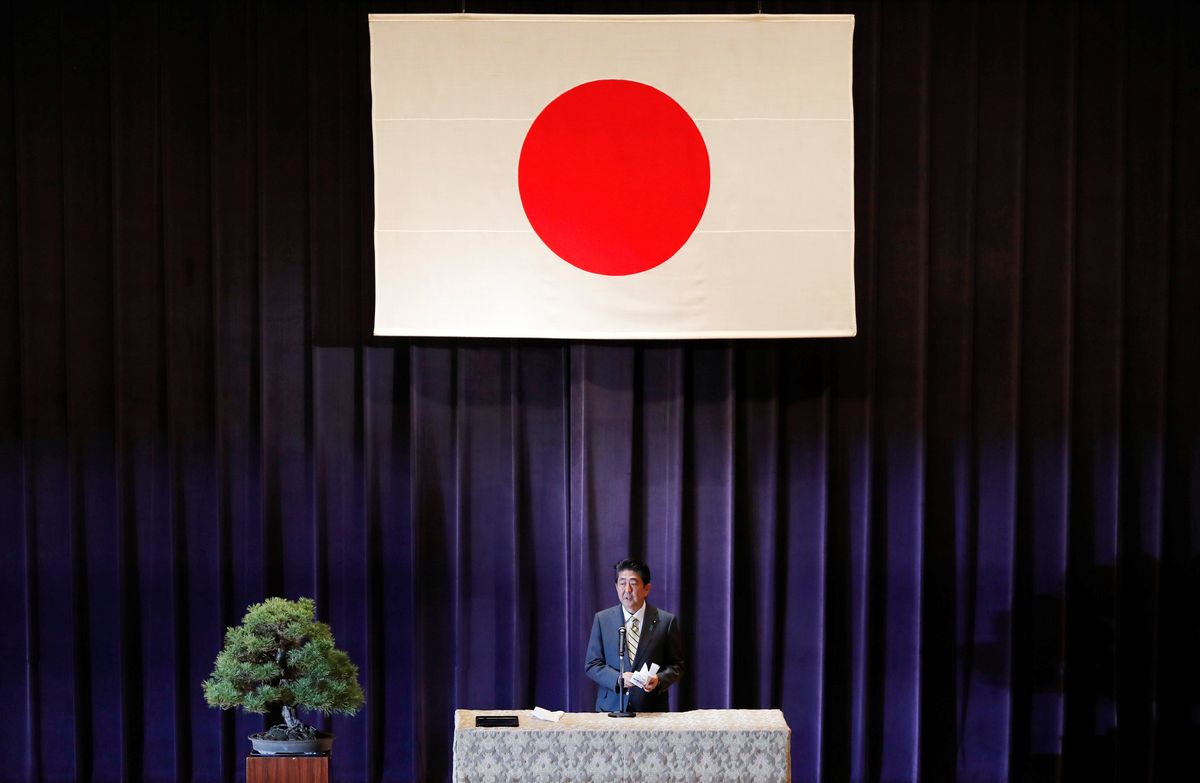Japanese Prime Minister Shinzo Abe is set to take the final step toward becoming Japan's longest serving post-war leader at a critical moment for his country. Tomorrow, Abe’s ruling Liberal Democratic Party (LDP) will likely elect him to a third term as party boss, enabling him to serve out another three years as prime minister.
To get this far, Abe had to beat back a series of summer graft scandals, but with three-quarters of the LDP now back in his corner, the vote should be a shoo-in. The upcoming term will likely be Abe’s last, and he has big ambitions for it.
Here are the three top items on Abe’s agenda:
Rebuilding his cabinet: Abe’s most immediate task will be to take care of lingering issues related to a corruption scandal involving the sale of public lands on preferential terms to an educational group with ties to him and his wife. He’ll aim to shore up support by reshuffling his domestic policy team. But Abe has to step carefully. Any early missteps on personnel could doom his ambitious third-term agenda at just the moment when his approval rating has recovered from record lows earlier this year.
More assertive diplomacy: After repeated snubs from Japan’s closest ally, the US, Abe will continue to look elsewhere for new diplomatic partners. In recent months, Japan has reached out a hand to China, with Abe planning next month to make the first official state visit of a sitting Japanese prime minister to Beijing since 2011. Tokyo sees an opportunity for closer economic ties to China and would like to find opportunities for Japanese companies to work alongside Chinese firms as a part of Beijing’s Belt and Road Initiative. There has even been discussion of Abe meeting with North Korea’s Kim Jong-un, after being left out in the cold by the US on North Korea negotiations.
On economic diplomacy, Abe took big steps in his last term to deepen Japan’s global trade ties—signing a long-awaited free trade deal with the EU. He’s now focused on finalizing TPP-11, the modified trans-Pacific trade pact that excludes the US, which has so far only been ratified by 3 of the 11 signatories.
A new mission for Japan’s military: The top priority of Abe’s final term is to rewrite Japan’s constitution – which was drafted by the US after World War Two and still forbids it from taking military actions beyond self-defense. With the US pulling back from the region while China’s military ambitions expand, Abe wants greater freedom for Japan to use its military as it sees fit. But around 61 percent of the Japanese public oppose the move, and any permanent change would require majority support in a popular referendum.
The bottom line: Whether Abe starts off his third term on the right foot may well determine if he can deliver on the most ambitious proposal of his political career, amending Japan’s constitution—and one that would fundamentally refashion Japan’s role in the world.



















